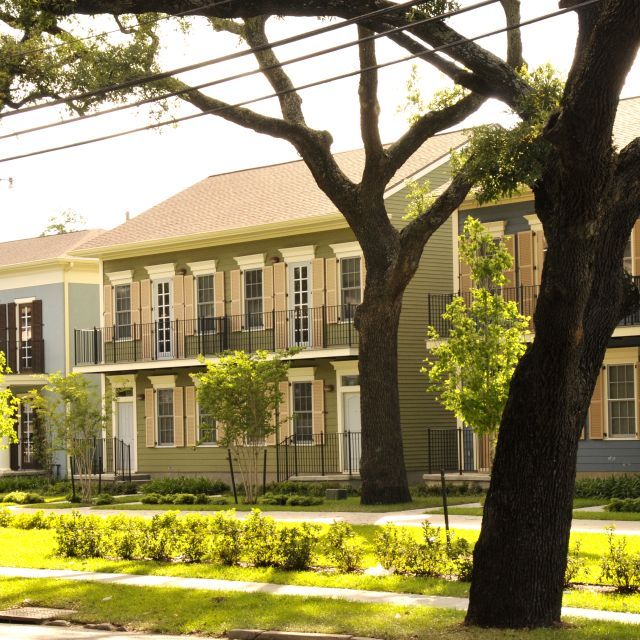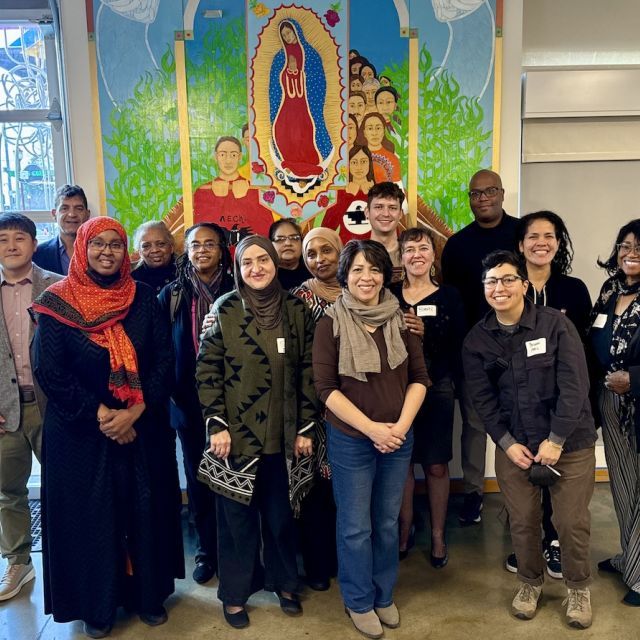On May 11, the Colorado legislature wrapped an intense 2022 session where policymakers tackled a myriad of enduring issues alongside one-time allocations of billions in federal aid.
Affordable housing was a highly visible priority across political parties and all areas of the state, particularly as the Covid-19 pandemic illuminated and exacerbated many Coloradans’ struggles to afford stable housing.
The initiatives coming out of the capitol have the potential to serve those hurt most by the pandemic’s fallout and to help address systemic barriers that have led to inequitable access to high-quality, affordable homes.
We are grateful to have collaborated with diverse policymakers and stakeholders to shape or support many of the bills described below, with a focus on initiatives advancing financing for affordable housing and stabilizing low-income renters.
Pandemic-Prompted Public Investments
Housing Affordability and Stability
Last year, the legislature set aside hundreds of millions of dollars in federal American Rescue Plan Act (ARPA) funds for affordable housing and established the Affordable Housing Transformational Task Force and its advisory subpanel. These groups were charged with considering investment and related policy opportunities particularly to serve communities and households hardest hit by the pandemic, and after several months of collaboration, final recommendations were issued in a January 2022 report.
This year, the legislature passed five bills in direct response to the Task Force’s funding recommendations, allocating a total of $428 million in federal and state funds.
House Bill (HB) 1304 creates two grant programs: One will be administered by the State Division of Housing (DOH) and directs $138 million to local governments and nonprofit entities for a wide range of activities to increase housing affordability and stability. Notably, this includes providing flexible rental assistance and supporting nonprofits connecting renters to rental and legal assistance.
The second grant program, called “Strong Communities,” will be administered through the State Division of Local Government and provide $40 million for local governments’ infill and infrastructure upgrades while incentivizing sustainable land use practices. Funds in both grants must be obligated by the end of 2024 and spent by the end of 2026.
A $150 million revolving loan fund established through Senate Bill (SB) 159 provides low-interest capital for affordable housing production and preservation, land banking, acquiring and converting existing properties to transitional or long-term housing, permanent supportive housing and other uses to increase affordable housing.
Funds will be prioritized to projects serving communities negatively impacted by the pandemic or that have experienced challenges accessing other financing. The loan fund is intended to last in perpetuity, administered by some combination of DOH, the Colorado Housing Finance Authority (CHFA) and qualified third-party entities.
In addition to those two more wide-ranging bills, HB 1282 establishes a $40 million program through the Colorado Office of Economic Development to incentivize the production of modular and other types of manufactured homes, and SB 146 directs $25 million to CHFA’s existing Middle Income Access Program to finance rental units affordable to households earning between 80% and 120% of their local area median income. And SB 160 provides $35 million for loan and grant funds to support mobile homeowners’ efforts to purchase their parks and ensure the long-term affordability of resident-owned communities.
Finally, while not specific to housing, HB 1356 notably establishes a $35 million grant program through the state Division of Local Government to support small community-based nonprofit organizations’ capacity building. This funding could provide a much-needed boost to many community-led groups effectively keeping their neighbors housed by helping them navigate available resources, despite being stretched thin themselves by the pandemic. These funds must be allocated by the end of 2024 and used by grantees before the end of 2026.
Homelessness Response and Resolution
Three bills collectively allocate an additional $200 million in ARPA funds to address homelessness statewide, implementing a package from Gov. Polis and DOH that complements the Affordable Housing Transformational Task Force’s final recommendations.
The largest, HB 1377, provides $105 million in grants administered by DOH for local governments and nonprofit organizations to provide a range of locally tailored outreach, housing, recovery, and supportive services, as well as to advance data collection and case management systems.
HB 1378 provides $50 million to stand up a new campus in the Denver metro area to house and connect people to other needed services, while SB 211 invests $45 million in repurposing a currently empty state-owned residential care campus in Arapahoe County to transitional housing, medical, behavioral and mental health services for people experiencing chronic homelessness.
Making One-Time Investments Go Further
Despite ultimately having to be pared back from proponents’ original proposals, two different tax credit programs will now be available to leverage the one-time investments described above:
- The state Affordable Housing Tax Credit, administered by CHFA, is an effective complement to the federal Low Income Housing Tax Credit. With the program’s current allocation of state dollars coming to an end in the next year, HB 1051 extends CHFA’s authority to allocate up to $10 million in tax credits each year through 2031.
- HB 1083 effectively revamps an existing program to create the statewide homelessness contribution income tax credit, managed by DOH. From 2023 through 2026, a 25% tax credit will be available for private contributions to approved nonprofit homelessness service providers for a range of eligible uses, with a slightly higher percentage being tax-deductible in rural counties to further incentivize investments in these areas.
Additionally, HB 1117 gives counties and local marketing districts the flexibility to use new and existing lodging tax revenues for locally needed housing and childcare supports, with the approval of area voters.
Stabilizing Renters Living on Low or Fixed Incomes
As new resources become available, Colorado renters seeking housing or who are at heightened risk of not being able to obtain or remain in their homes will benefit from new protections. Such initiatives passed this session include:
- SB 019 allows renters facing eviction an easier time working with legal aid providers who might provide legal guidance or represent them in court.
- Under HB 1102, people looking to rent or buy a home cannot be discriminated against because of their veteran or military status, which some landlords or sellers have assumed as a proxy for some form of disability and consequently denied housing.
- HB 1314 will curb many of the harms of predatory towing practices that often target low-income renting households and mobile homeowners, whose housing stability can in turn be jeopardized by a tow’s unexpected and significant costs.
- And HB 1082 establishes a Fair Housing Unit within the Attorney General’s Office to enforce certain housing and landlord-tenant laws.
Other Notable Initiatives
Introduced in the last weeks of the session, SB 232 establishes a new statewide special purpose authority called the Middle Income Housing Authority. The Authority will receive an initial $1 million in state funds, then issue unrated bonds and rely on exemptions from sales, use, and property taxes as means of financing rental units affordable to households earning at least 80% of their area median income up through market-rate units. Its scope will begin as a pilot of no more than 3,500 units and be subject to quarterly reporting, which should inform any guardrails necessary to ensure the Authority’s public benefit and minimize any negative impacts.
Finally, Enterprise appreciates the legislative sponsors and our partners who advanced successful efforts to stabilize homeowners at heightened risk of displacement, including some homeowners association members, older adults, and people who own mobile homes.
In the months ahead, we look forward to continuing to partner with policymakers, implementing agencies and stakeholders to ensure Colorado’s new resources, programs and protections meaningfully benefit those with the greatest housing needs.


